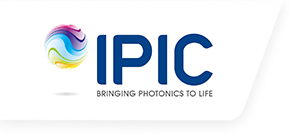On May 2nd, Explorer 2024 concluded successfully with projects pitching their deep tech pre-commercialisation projects. Seven enthusiastic and hard working teams presented their outcomes. Congratulations to all involved, especially to the winning team “PIXSA” from the Centre for Advanced Photonics & Process Analysis (CAPPA), Munster Technological University: S. Hadi Badri and Samira Jastan presented their innovative idea of Integrating optical chips into smart wearables for Painless Blood Sugar Monitoring. S. Hadi Badri has commented “Entering explorer, we had a raw idea, but the program was instrumental in helping us refine it significantly. Through the program’s workshops and mentorship, we were able to evolve our idea. We gained valuable insights into market needs and adapted our concept to ensure it has a strong commercial fit. The program equipped us with the tools to effectively communicate the value proposition of our solution. Our next steps involve conducting a thorough proof-of-concept phase to validate the technical and commercial feasibility of our solution. Following successful proof of concept, we plan to apply for commercialization funding from Enterprise Ireland to support the next stage of our spin-out journey. The program’s expert guidance and focus on pre-commercialization are crucial for researchers and entrepreneurs. We highly recommend Explorer to any researcher or entrepreneur looking to bridge the gap between research and commercialization. We’re incredibly grateful for the opportunity to participate in Explorer and look forward to the exciting journey ahead!”
We are looking forward to seeing all teams progress towards becoming successful spinouts. Across the teams there was representation from IPIC, IERC of Tyndall National Institute, CAPPA, MTU and Connect Centre, TCD and Tyndall National Institute; working on different ideas, from Nature-tech, Energy, Display to MedTech.
The Explorer deep-tech pre-commercialisation programme aimed to help researchers to define their innovative ideas, and start their commercialisation journey. During the 3-months of the programme, more than 700 hours of training and mentorship were provided, involving 35 mentors, experts, entrepreneurs, investors, TTO case managers and innovation managers contributed to the success of the programme.
The programme is a collaboration led by IPIC-the SFI Centre for photonics, with Tyndall National Institute, ams-Osram, CONNECT (the SFI Centre for Future Networks and Communications), with support of Enterprise Ireland, Atlantic Bridge, IPCEI, Nova UCD, DogPatch Labs, MIDAS and Science Foundation Ireland.
If you are interested in the programme, reach out to us to learn more. Explorer will be accepting applications for its next programme in October 2024 for a January 2025 start.




